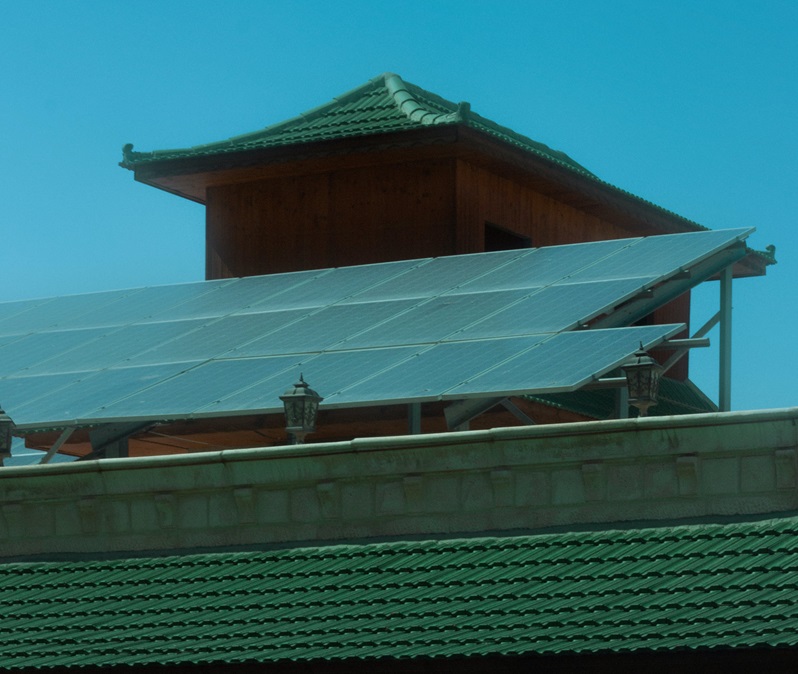1. Texan Japan-Taiwan Trade Mission
In an era where global partnerships are increasingly crucial, the Texas Economic Development Connection recently led a groundbreaking initiative that has set a new benchmark in international economic relations. The Japan-Taiwan Economic Development Trade Mission has been a resounding success, demonstrating the strength and versatility of Texas as a global business destination.
This mission, powered by Day One Experts, was driven by the goal of forging robust international partnerships, facilitating trade expansion, and encouraging foreign direct investment in Texas. The mission was led by prominent figures such as Super Dave Quinn, CEcD, founder of Day One Experts, and Carole Tam, CCIM, owner of TAC Brokerage & Consulting. Their expertise and vision have been instrumental in guiding this initiative towards success.
The mission also included participation from dynamic Texas communities and partners, all of whom demonstrated the diverse economic opportunities available across the state. The delegation engaged in high-level discussions and networking sessions with key stakeholders in Japan and Taiwan, paving the way for future collaborations, trade agreements, and investment opportunities.
This article delves into the details of this mission, its impact, and the promising future it heralds for Texas as a hub for international business.
The mission was generously sponsored by the Sulphur Springs Hopkins County EDC and Schulz Trade Law, highlighting the commitment of Texas entities in fostering an environment conducive to global business growth and development.
Throughout the mission, delegates engaged in high-level discussions and networking sessions with key stakeholders in Japan and Taiwan. These interactions have paved the way for future collaborations, trade agreements, and investment opportunities.
The delegation showcased Texas’ robust infrastructure, business-friendly climate, and diverse workforce, positioning the state as an ideal location for international companies looking to expand or establish new operations.
Outcomes
- Forging International Partnerships: The mission has successfully forged robust international partnerships, marking a significant stride in international economic relations.
- Attracting Foreign Direct Investment: The mission aimed to attract valuable foreign direct investment into Texas, thereby boosting the state’s economy.
- Facilitating Trade Expansion: The mission facilitated trade expansion between Texas, Japan, and Taiwan, opening up new avenues for business.
- Showcasing Texas’ Strengths: The delegation showcased Texas’ robust infrastructure, business-friendly climate, and diverse workforce, positioning the state as an ideal location for international companies looking to expand or establish new operations.
- Future Collaborations: The high-level discussions and networking sessions with key stakeholders in Japan and Taiwan have paved the way for future collaborations, trade agreements, and investment opportunities.
Overall, the mission has been a testament to Texas’s readiness and capability to support international business endeavors. It has set a strong foundation for future economic development initiatives and has positioned Texas as a global business destination.
2. Scottish mission to Barbados

David Rico via Pexels
In a time of increasing global interconnectivity, the recent Scottish Trade Mission to Barbados stands as a testament to the power of international collaboration. This mission has successfully deepened the economic ties between Scotland and Barbados, paving the way for a slew of new business opportunities.
Organised by Invest Barbados, the Renfrewshire Business Network of Scotland, and the UK Department for Business and Trade (DBT), the mission saw the participation of twenty-two Scottish firms and organisations. The mission aimed to establish a direct exporting route from Scotland to Barbados and highlight the investment opportunities in the Caribbean Island.
From the University of the West of Scotland (UWS) signing a memorandum of understanding with the University of West Indies, to PRM Waste Systems signing an agreement with Barbados firm Shorelinez and Stuffers, the mission was marked by several significant collaborations.
This article delves into the details of this mission, its outcomes, and the promising future it heralds for Scotland-Barbados economic relations.
Outcomes
- University of the West of Scotland (UWS): UWS signed a memorandum of understanding with the University of West Indies. UWS was also able to share its expertise in water scarcity, aquaculture, thin films/ultrasound, and dementia care.
- SPACE Retreats: Life coach and mentor, Cat Peterson, met with Tom Hinds of the Naniki resort, and the two have agreed to further discussions, aimed at bringing SPACE retreats for women-led businesses to Barbados.
- HowGroupUK: HowGroupUK opened up new ways of supporting Barbados and the Caribbean with its supply of renewable energy products. The group also agreed that Barbados would be the pilot for some new and upcoming innovations in green energy.
- PRM Waste Systems: PRM Waste Systems signed an agreement with Barbados firm Shorelinez and Stuffers, which specialises in providing high-quality fresh and frozen seafood to restaurants throughout the Caribbean. Shorelinez and Stuffers will be the importer of PRM’s range of food waste processors in the area.
- ID Cyber Solutions: ID Cyber Solutions held very positive talks and has been asked to return soon to sign contracts. The cyber security firm is bringing the new IASME Cyber Baseline security certification for organisations outside the United Kingdom to the island.
These outcomes highlight the success of the mission in fostering international business ties and creating new opportunities for Scottish firms.
3. Biden abandons UK trade deal

David Starkopf / Office of Mayor Antonio R. Villaraigosa Xi Jinping Visit-7 CC BY-NC 2.0 DEED https://creativecommons.org/licenses/by-nc/2.0/
Photos: David Starkopf / Office of Mayor Antonio R. Villaraigosa Xi Jinping Visit-7 CC BY-NC 2.0 DEED https://creativecommons.org/licenses/by-nc/2.0/
US President Joe Biden has reportedly abandoned trade deal talks with Britain over concerns about potential job losses. The negotiations for a post-Brexit trade agreement have been ongoing since October 16, 2018. However, the talks that were set to start in October were abandoned due to opposition from members of Biden’s Democratic Party in the US Senate.
The Biden administration is focusing on bolstering American industry as part of his bid for re-election. There was also a failure to agree on how big such a deal should be. The lack of progress in talks has been a bone of contention between No 10 and the White House. The American government has not been eager to enter into any agreements that could undermine Biden’s reputation as a champion of organized labour.
Since taking office, the 46th president has made a point of pushing for worker protections in all international trade agreements. However, the lack of robust labour standards in an outline for a US-UK proposal that circulated earlier this year raised concerns among Senate Democrats, many of whom are, like Biden, outspoken allies of the US labour movement.
Despite the end of formal talks, some sources suggest that discussions between Britain and the US designed to reach a slimmed-down deal are still ongoing. The Biden administration is understood to have opposed the idea of a so-called “foundational” deal which would tackle a number of currently existing barriers to transatlantic trade.
4. Solar panel market in Europe

Hazily Light via Pexels
LONGi, one of the main Chinese solar panel manufacturers, has been significantly increasing its presence in Europe. In 2023, the company shipped almost 6GW worth of solar panel modules to Europe, and plans to increase that number in 2024. This is part of LONGi’s strategy to capitalize on the aggressive plans of European countries to reach sustainable goals by 2030 and 2050.
LONGi has developed deep marketing insights in Europe and has subsidiaries in Spain, Italy, Poland, England, and the Netherlands. The company’s solar photovoltaic (PV) modules are cheaper than their European counterparts, making them highly demanded in the market.
In addition to ramping up sales, LONGi has also been innovating its product offerings for the European market. For instance, the company has introduced a special 66-cell solar panel based on M10 wafers with a newly designed frame. This special module configuration enables installation in landscape format, as the panels can also be fixed to the short side of the frame. This design optimizes the installation of solar modules in ground-mounted systems and makes system planning significantly more flexible.
Furthermore, LONGi has been considering setting up a factory in Germany, which would further strengthen its presence in Europe. This move is also being considered by other Chinese solar energy companies like Jinko Solar, Trina Solar, and Daqo New Energy.
Overall, LONGi’s efforts to ramp up the sale of solar panels in Europe represent a strategic move to tap into the growing demand for renewable energy solutions in the region.
China tensions
EU-China relations have been experiencing significant tension in recent years. Here are some key points:
- Trade and Economic Relations: The EU and China continue to be important trade and economic partners. However, the EU has expressed concerns over China’s aggressive foreign policy in the Indo-Pacific region. The EU wants to maintain and grow business relations with China, while also criticising China’s human rights record, governance model, and foreign policy.
- Human Rights Concerns: The EU has reiterated its concerns regarding forced labour, the treatment of human rights defenders and persons belonging to minorities, the situation in Tibet and Xinjiang, as well as the honouring of China’s previous commitments related to Hong Kong.
- Security Concerns: The EU is concerned about growing tensions in the Taiwan Strait. It opposes any unilateral attempts to change the status quo by force or coercion.
- Support for Russia: The EU has called on China to press Russia to stop its war of aggression, and immediately, completely and unconditionally withdraw its troops from Ukraine.
- Future Outlook: The EU-China summit held in Beijing from December 7th‑8th, 2023, failed to ease major EU‑China tensions. The summit suggests that EU-China ties are mirroring the structural decline in US‑China relations. The Economist Intelligence Unit predicts that EU-China tensions will worsen in 2024.
These tensions reflect a broader tension in the EU’s China policy, and it remains to be seen how these issues will evolve in the future.
The largest non-Chinese manufacturer of solar panels is First Solar, an American company. It is one of the leading global providers of comprehensive photovoltaic (PV) solar energy solutions. First Solar has developed, financed, engineered, constructed, and currently operates many of the world’s largest grid-connected PV power plants. Their experience across the solar value chain reduces risk while delivering more reliable, dependable, and cost-effective solutions for their customers.
5. 2024: Hot technology trends

Athena via Pexels
As we stand on the brink of a technological revolution, the landscape of innovation continues to evolve at an unprecedented pace. The year 2024 promises to be a pivotal year in this journey, with several emerging technology trends poised to redefine the boundaries of possibility. From the democratization of Generative AI to advancements in semiconductors, post-quantum cryptography, and green tech, these trends are set to transform not just industries, but societies and economies at large.
In this article, we delve into the top five technology trends of 2024, exploring their potential impacts, the opportunities they present, and the challenges they pose. We will examine how these trends are shaping the future of business, society, and our everyday lives, and what they mean for stakeholders across the spectrum. So, buckle up and join us as we embark on this exciting journey into the future of technology in 2024.
Top technology trends
- Generative AI: Generative AI is set to dominate the tech landscape in 2024. It’s versatile and formidable, unlocking endless possibilities. By 2024, it’s projected that 40% of enterprise applications will use this technology, up from less than 5% in 2020.
- Cybersecurity: Cybersecurity is shifting from a top priority to an absolute necessity. With the cost of cybercrime projected to be $10.5 trillion by 2025, up from $3 trillion in 2015, companies must invest in advanced security technologies to protect their assets.
- Green Tech: Top technology companies are embracing Green Tech and will continue to do so into 2024. For instance, Apple has set a commendable goal of achieving 100% carbon neutrality by 2030.
- Semiconductors: Evolutions in semiconductors are expected to be a key area to watch in 2024. Semiconductors are instrumental in addressing the challenges of our economies, communities, and ecosystems.
- Post-Quantum Cryptography: Post-quantum cryptography is another area to watch in 2024. As quantum computing advances, the need for post-quantum cryptography to secure data against quantum attacks becomes increasingly important.
These trends represent the fast-evolving landscape of technology and will likely shape the tech industry in 2024 and beyond.
6. Pints of wine

The UK government has announced that ‘pint’ sized bottles of still and sparkling wine, in the form of a new 568ml size, will soon be available on supermarket shelves, pubs, clubs, and restaurants.
This move to introduce the 568ml size will sit alongside the 200ml and 500ml measures already available, offering more flexibility and choice for customers.
The changes will also allow new quantities of both pre-packed still and sparkling wine – in bottles or cans – to be sold in 200ml and 500ml quantities alongside the new 568ml “pint” quantity.
There is no legal obligation for businesses to sell in the new sizes.
Some 900 vineyards, which currently produce around 12.2 million bottles of still or sparkling wine a year, are set to benefit from the new post-Brexit “freedoms”.
These optional reforms from the Government are thanks to the new Brexit freedoms via the Retained EU Law (Revocation and Reform) Act 2023.
The changes will help to boost innovation, increase business freedoms, and improve choice for consumers.
The government also used the announcement to confirm that after “careful consideration” it had decided not to introduce any new legislation following its consultation on choice around units of measurement.
7. Hungary: New Immigration Rules

Timi Keszthelyi via Pexels
The Hungarian parliament approved a new immigration law concerning entry and stays for third-country nationals that took effect on January 1, 2024.
The new legislation updates key provisions of existing law pertaining to residence permits for foreign nationals, as well as employment of migrant workers.
The country’s immigration office did not accept immigration applications from January 1, 2024, until February 29, 2024.
Procedures related to the applications for a residence permit and for a permanent residence permit submitted before January 1, 2024, were suspended between January 1, 2024, and February 29, 2024.
The validity of residence permits and permanent residence permits expiring between January 1, 2024, and February 29, 2024, were extended until April 30, 2024.
During the period from January 1, 2024, to February 29, 2024, administration of only the following types of cases was available: taking biometric data for applications submitted electronically by December 31, 2023; applications for the replacement or substitution of a document; extension of an expiring certificate entitling its holder to temporary residence; extension of the validity of an immigration permit document; applications of EEA nationals for the issuance of a registration certificate or for a permanent residence card; applications of family members of EEA nationals for the issuance or extension of a residence card or a long-term residence card.
These changes redefine residence permit categories, their names, and new eligibility criteria.
Key provisions
- Temporary Suspension of Residency Applications: All residency applications were temporarily suspended for January and February 2024. No new application could be submitted during this period¹².
- Automatic Renewal of Expiring Residency Cards: All residency cards expiring before March 2024 were automatically renewed until the end of April 2024.
- New Residency Types and Categories: The law introduced new types of resident permits, including the guest investor permit (also known as the Golden Visa). Work permits now belong to several categories depending on the qualification of the employee, the length of employment, and the structure of the company.
- Restructuring of Major Permit Types: Some major permit types have been restructured. The former “gainful activity” permit assigned to owner/CEOs of companies, now falls into two separate categories, depending on the qualifications and involvement of the owner/CEO.
- Discontinuation of “Other Purpose” Category: The former category of “Other Purpose” was discontinued and replaced by a number of specific permit types, such as humanitarian activity, medical treatment, and so on.
- Extension of Validity of Certain Documents: The validity of residence permits and permanent residence permits expiring between January 1, 2024, and February 29, 2024, were extended until April 30, 2024.
These changes significantly reshape the immigration landscape in Hungary.







